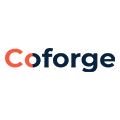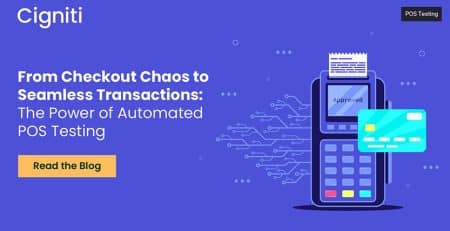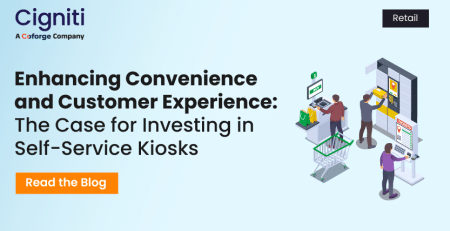Importance of Automation in Retail Industry
|
Listen on the go!
|
Walmart has become the third-largest global IT spender. Sephora flags off digital and in-store shopping experiences. H&M blends virtual shopping with physical ease. IKEA Retail hires Google veterans to chalk out a digital transformation strategy. Touted to be the most sought-after brands in this segment for decades, what made these legacy retail giants go digital at this point?
Earlier, retailers relied on conventional approaches like locating new stores, stocking shelves, sales data, demographics, etc., to steer business decisions. The exponential growth of online shopping, owing to changing consumer behavior and the volume of data now available, has forced the industry into a critical transition.
This revolution has redefined how IT applications and technology for the retail industry are perceived, developed, supported, and run. Software Quality has become a requisite element for a retailer’s success.
According to Research and Markets prediction, the global retail market is expected to reach $39,933.3 billion in 2030, at a CAGR of 6.3%. Gartner predicted that global retail sector technology spending would grow 3.6 percent to reach almost $203.6 billion in 2019, with similar growth rates for the next two years.
Going digital, most of the shopping journey gets virtualized, so quality software must catalyze growth and sustainability. Testing takes the spotlight owing to the enhanced application complexity, omnichannel software, numerous platforms and devices, and superior customer expectations.
Coupled with this, an application failure can severely impact the entire business value chain, and even a minor glitch can have adverse effects if it affects the user or customer experience. The best validation approach is needed to evade risks arising from breaches in security and data standards. To overcome these challenges of high volume and multiple test scenarios, an efficient test automation process is critical to the retail industry.
Retail Industry Challenges – Test Automation Solutions
Speed Augmentation at Low Cost
To provide a unique customer experience round the clock, retail brands update and release applications continuously on the current digital platforms. Automation in the retail industry enables repeated tests multiple times during the entire software development cycle.
These repeated automated tests increase speed and simultaneously reduce the cost of quality assurance. This accelerates the retailers’ ability to speed up their market releases and stay ahead of the business curve, not only retaining market share but also the customers.
Omni-Channel Deployment
As the retail business goes digital, products and services are delivered through different channels and touchpoints, harnessing the potential of technological innovations like IoT, chatbots, voice bots, etc. This calls for seamless customer expectations across multiple channels and platforms. On top of that, customers can shop at any time, anywhere, and from any device.
Retail brands should live up to these expectations on all channels and platforms. Given this magnitude, testing on multiple devices with various operating systems and all possible scenarios and bandwidth simulations is a cumbersome activity. At this juncture, Test Automation becomes critical, as it is designed and developed to handle a large number of test cases covering multiple systems at the speed of business.
With UI and visual component validation advantages, automated testing can ensure data integrity and a seamless customer experience across devices and channels.
Integration with Third-Party Applications
In the race to scale up operations and increase delivery times, retail brands vouch for integration between various networks, especially third-party applications for payment processing, analytics, social media integration, and more. Due to this, developers would be able to build a new solution in a shorter timeline, using already existing components instead of writing code for new ones from scratch.
This poses a challenge for testers to integrate continually with various devices, systems, and applications. As most of the transactions are done on both physical and digital platforms, this may pose a challenge in managing promotions. Point of Sale devices require integration with other software like inventory, merchandising, etc.
Security Enhancement
Mobile payment gateway solutions, POS applications, credit card mobile apps, etc., make retail businesses vulnerable to security threats. The fear of personal information breaches would trigger distrust in customers. This can have an adverse impact on the customer’s experiential journey. They want retail brands to take a stand, adhere to ethical practices, and be inclusive of their values and beliefs.
Test automation in retail plays a critical role in preventing customer information breaches. The testing team would focus on application profiling, authentication, and encryption to safeguard against these threats. By using automation testing, the team would introduce testing frameworks to increase security checks and mitigate sensitive data breach issues.
Listed here are the testing solutions that can be automated to overcome retail brand application challenges:
- Performance and Load Testing: App performance issues that are negatively affecting the overall customer experience.
- Security Testing: Security glitches while processing transactions across various e-commerce platforms.
- Load Testing: Increased/heavy app loading time adversely affects customer experience, where customers resort to app switching instantly.
- Integration Testing: Payment processing delays play a crucial role in customer dissatisfaction. Customers continue to abandon apps due to these delays.
- Usability and web accessibility Testing: App usability and accessibility with a multi-navigation flow that makes users refrain from using the app.
How Test Automation Accelerates Retail Digital Transformation
Error Detection Accuracy
With test automation, the accuracy level is enhanced to more significant levels when it comes to detecting bugs. It seamlessly supports the agile and iterative model of quality assurance. This ensures the facility shifts left by recording and detecting errors earlier in the development cycle. In effect, it enables retail businesses to accelerate their go-to-market strategies while also improving the customer experience by meeting their quality expectations.
Achieve precision
For the retail industry, ‘accuracy’ is one of the definite benefits of test automation. In order to become a leading retail brand, accuracy is critical. No matter how many times they repeat the process, machines follow each step with precision, and it will still be quick and accurate. Unlike the human workforce, machines do not get tired or make any errors.
Lesser errors or error-free applications ensure a better customer experience, and this enhanced user experience makes a massive difference to your brand.
Get instant feedback
As automation increases, instant feedback from the customers and the users also increases. The turnaround time for feedback is reduced drastically with the help of test automation for retail software. Customer feedback plays a critical role as it provides data about customer satisfaction and peer recommendations. This feedback analysis helps retail brands enhance their product quality and customer experience.
Test Automation Intelligence
The application of advanced technologies like AI and ML in automation has further boosted the quality, efficiency, and speed with which retail brands can mitigate risks and achieve their business goals. With the help of AI, test cases, scripts, and code can be generated automatically.
Algorithms constantly learn from the test data to deliver valuable insights like application reliability, failure patterns, defect heat maps, and intelligent classification of errors. By eliminating the redundant test cases, AI-led automation helps increase coverage using a model-based testing approach. Given this scenario, retail brands need intelligent decision-making and faster validation to keep up with the testing challenges.
Why Cigniti
Independent software testing with effective implementation of the Test Automation Center of Excellence (CoE) is the need of the hour.
Considering there is a constant need to conduct tests across technology platforms and devices, automating tests for effective and consistent results is a much-needed approach. The marketplace is flooded with licensed and open-source test automation tools to accelerate time-to-market and ensure quality and cost-effectiveness. In addition, automating the tests further helps ensure the performance of the applications that are expected to give recurring results across stores, e-portals, etc.
Cigniti takes precedence in providing Test Automation services and has built a dedicated Automation Center of Excellence (ACoE) that is backed by a decade of experience in executing test automation engagements for global clients.
At Cigniti, we have been working with leading enterprises in North America and have served Fortune 500 enterprises and ISVs. Enterprises operating across industries have been leveraging Cigniti’s Advisory and IP-led Independent Software Testing services to gain higher ROI from their Quality Assurance initiatives.
Connect with us for a comprehensive Test Automation strategy that empowers you to not only reach the market faster but also sustain profitably in the immensely demanding retail sector.





Leave a Reply